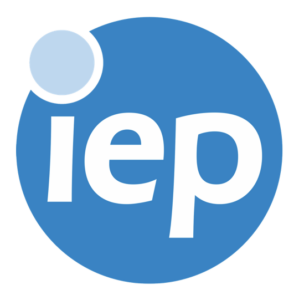IEP Certificate in Employability Practice
Who is this Program for?
- All employability practitioners
- Designed for learners who have completed the IEP Accredited Employability Essentials or an IEP recognised equivalent in-house program.
Recommended for practitioners who are already managing caseloads (although this can be adapted for IWS or manager roles, for example), the Certificate is developed around key themes that allow learners to apply this knowledge and skills in a work environment and evaluate their performance whilst helping to support the people who are currently on their caseload. There are also tutor led online social and collaborative peer review interventions to support the consolidation of learning and skills, all of which will support the learner in gathering evidence of their competence against the assessment criteria.
Program Overview
The Certificate in Employability Practice is aimed at frontline practitioners and is a learning progression from the IEP Accredited Employability Essentials.
By completing this qualification, frontline employability practitioners can enhance their skills and knowledge to better understand and tackle the multi-faceted barriers faced by participants. They will be able to offer personalised and culturally-sensitive support, help individuals make informed decisions, and provide them with the tools and strategies necessary to navigate the job search process and transition into employment successfully.
This qualification equips individuals with frameworks, tools, and specialised knowledge to develop the competence and capability needed to deliver high-quality services as a professional practitioner within the Employability Sector.
Structure and Timings
This is a blended learning program that takes the learner on a journey from understanding the models and frameworks for professional relationships, applying the learning in coaching and group facilitation with participants, research and involvement with local communities and finding and competing for work in the modern age. It is ideal for all practitioners and takes approximately 9 months to complete.
Total qualification time is 151 hours.
Learning Delivery and Assessment Method
The Certificate in Employability Practice uses a blended learning approach to help learners develop their knowledge, skills and capabilities, via electronic and online media, as well as traditional face-to-face teaching.
Subjects Covered
Contracting, Action Planning and Caseload Management
In this unit, learners will explore and undertake learning sessions which will help them to develop the skills and capability to create supportive, progressive and genuine working relationships with their participants. Using methods that demonstrate how to create and maintain boundaries while using tools to effectively manage a caseload of individuals in targeted and realistic work-based goals.
Interpersonal, Coaching and Facilitation Skills
This unit dives deeper into the practitioner/participant relationship and explores ways to build and embed practical communication tools that develop and demonstrate genuine trust and respect, leading to the delivery of participant centred support and the recognition and pursuit of self-efficacy. Learners will use directed guidance and active learning with both individuals and groups of participants, to pave the way to successful progress in work-based goals.
Supporting Informed Decision-making
This unit explores and analyses the importance of knowing, respecting and being connected to local communities, exploring the social, cultural, and local custom differences which can impact on belief regarding work opportunities. The learner will examine individual rights, duties, disadvantage and reality testing in relation to employability programme expectations, and understand the physical, environmental and legislative limitations which affect both the participant and practitioner as they endeavour to succeed on their journey to work-based goals.
Finding and Competing for Work
The final unit of the qualification covers crucial knowledge and understanding of local and sectoral labour markets, employment legislation as well up to date relevant job searching methods and employer engagement activities. The learning looks to support practitioners as they guide their participants through their choices of realistic opportunities and provides guidance on current labour market trends, and how to make that successful transition from unemployment into employment.
Benefits of Learning
Effective contracting and caseload management
The learning covers tools and methods for setting clear boundaries, expectations, and action plans with participants. This can help practitioners establish a structured and focused approach, monitor progress, identify obstacles, and allocate appropriate resources, enabling more efficient and effective case management.
Interpersonal and communication skills
By developing strong interpersonal communication, active listening, and coaching skills, practitioners can build trust and rapport with participants, better understand their needs, and provide tailored guidance and support. Effective communication is crucial for overcoming barriers and facilitating successful participant engagement.
Understand cultural and social factors
The learning emphasises the importance of recognising and exploring cultural, social, and personal factors that influence participants’ beliefs, values, and attitudes towards work. This knowledge can help practitioners tailor their approach, adapt their practices, and provide culturally-sensitive support, increasing the chances of successful outcomes.
Facilitate informed decision-making
The learning equips practitioners with techniques to assist participants in gathering information, exploring options, and making informed decisions about education, training, employment, or self-employment. By supporting participants in this process, practitioners can help them overcome indecision, clarify goals, and make choices that align with their values and circumstances.
Reality-testing and realistic simulation
The learning highlights the value of reality-testing and realistic simulation to help participants review and test their decisions. This can provide a safe environment for participants to explore potential challenges, identify practical solutions, and better prepare for the transition to employment.
Understand participant rights and ethical considerations
By examining concepts such as the Universal Declaration of Human Rights and ethical conflicts, practitioners can ensure that they respect participants’ rights, navigate power dynamics, and address potential constraints or limitations imposed by legal, welfare, or regulatory environments.
Labour market knowledge and job search strategies
The learning covers employment legislation, sectoral information, job search techniques, and strategies for competing for work. Armed with this knowledge, practitioners can provide up-to-date and relevant guidance, help participants develop competitive job-seeking skills, and connect them with suitable employment opportunities.
Support transitions to employment
The learning addresses personal, social, and occupational factors relevant to the transition from unemployment to employment. This understanding can enable practitioners to anticipate and address potential challenges, prepare participants for the realities of the workplace, and provide targeted support throughout the employment transition process.
Watch our learner videos!
Karen Gourlay MAIEP, personal advisor at Fedcap shares her thoughts after completing the IEP Certificate in Employability Practice.
Answering questions such as:
What motivated you to enrol on the CertEp qualification?
What key points would you make in relation to what they were able to give you as a learner.



Pricing
Certificate in Employability Practice
Potential discounts for volume, smaller organisations, charities, not-for-profits and self-funders are available. Please contact learning@iemployability.org to discuss.
Unit Rate
£1200.00
Unit Rate (Inc VAT)
£1440.00
.

